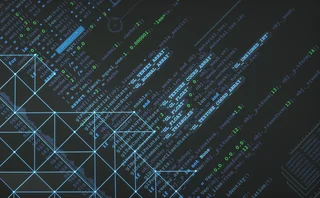Keeping One's Head About Japan

There's no way this week can pass without discussing the devastating earthquake, tsunami and aftershocks in Japan that have led to a nuclear disaster. This human tragedy will go down in history as one of the defining moments for modern Japan. The thoughts and prayers of the entire Sell-Side Technology staff are with all the victims of this horrible situation.
As with all disasters, there's the news coverage that works on raw emotion and stoking fear with "what if it happened here" scenarios that result in people half the world away emptying pharmacies of iodine pills.
Of course, neither the Japanese government nor Tokyo Electric Power Co. (Tepco) has done themselves any favors with the way they keep the flow of information on the situation at a trickle.
From an infrastructure perspective, the Tokyo markets were spared. Right after the initial event, the Japanese Financial Services Agency (FSA) established its disaster management team headed by Shzaburo Jimi, minister for financial services. The FSA, in conjunction with the Bank of Japan, requested that financial firms take appropriate measures to accommodate the quake victims. They also decided to monitor the markets to make sure that no one was using the situation to manipulate the markets. As part of this, they implemented a strict ban on naked short selling.
Currently, the markets face three major challenges: power, connectivity and psychological issues.
Due to a fluke in Japanese history, as reported quite well in ComputerWorld,the nation is split between competing power standards. The affected north and east of the country operates on a 50Hz network, while the south and west operate on a 60Hz network, which makes importing power to meet Tokyo's demands from the unaffected regions difficult if not impossible.
While the earthquake and resulting tsunami caused untold damage above the ocean, they also did a dramatic job on the number of sub-sea telecom cables linking the island nation to the rest of the world.
According to telecom research firm Telegeography, six of the major cables are out of service or have segments that are out of service. As a result, Internet traffic coming into Tokyo has seen a 15 percent drop in maximum incoming traffic over the previous week, according to data from internet exchange (IX) operator Internet Multifeed Co.'s JPNap Tokyo I IX.
Fixing these physical issues will take time and capital, but the most difficult issue will be addressing the psychological issues associated with the disaster. Over the past week, there has been a major brain drain happening in the financial community, as international bankers quickly relocate themselves and their family away from Tokyo.
How long will this last and what will it take to bring people back? I haven't a clue, but something will need to be done to make sure that Tokyo doesn't lose its standing in the global markets. To make this happen, clear heads will need to prevail.
Only users who have a paid subscription or are part of a corporate subscription are able to print or copy content.
To access these options, along with all other subscription benefits, please contact info@waterstechnology.com or view our subscription options here: https://subscriptions.waterstechnology.com/subscribe
You are currently unable to print this content. Please contact info@waterstechnology.com to find out more.
You are currently unable to copy this content. Please contact info@waterstechnology.com to find out more.
Copyright Infopro Digital Limited. All rights reserved.
As outlined in our terms and conditions, https://www.infopro-digital.com/terms-and-conditions/subscriptions/ (point 2.4), printing is limited to a single copy.
If you would like to purchase additional rights please email info@waterstechnology.com
Copyright Infopro Digital Limited. All rights reserved.
You may share this content using our article tools. As outlined in our terms and conditions, https://www.infopro-digital.com/terms-and-conditions/subscriptions/ (clause 2.4), an Authorised User may only make one copy of the materials for their own personal use. You must also comply with the restrictions in clause 2.5.
If you would like to purchase additional rights please email info@waterstechnology.com
More on Trading Tech
Will overnight trading in equity markets expand next year? It’s complicated.
The potential for expanded overnight trading in US equity markets sparked debate this year, whether people liked it or not.
WatersTechnology latest edition
Check out our latest edition, plus more than 13 years of our best content.
The total portfolio approach gains momentum: Building the right tech foundation for success
The rationale for the TPA, and the crucial role technology plays in enabling such an approach
Google, CME say they’ve proved cloud can support HFT—now what?
After demonstrating in September that ultra-low-latency trading can be facilitated in the cloud, the exchange and tech giant are hoping to see barriers to entry come down.
Institutional priorities in multi-asset investing
Private markets, broader exposures and the race for integration
BlackRock and AccessFintech partner, LSEG collabs with OpenAI, Apex launches Pisces service, and more
The Waters Cooler: CJC launches MDC service, Centreon secures Sixth Street investment, UK bond CT update, and more in this week’s news roundup.
TCB Data-Broadhead pairing highlights challenges of market data management
Waters Wrap: The vendors are hoping that blending TCB’s reporting infrastructure with Broadhead’s DLT-backed digital contract and auditing engine will be the cure for data rights management.
Robeco tests credit tool built in Bloomberg’s Python platform
This follows the asset manager’s participation in Bloomberg’s Code Crunch hackathon in Singapore, alongside other firms including LGT Investment Bank and university students.







